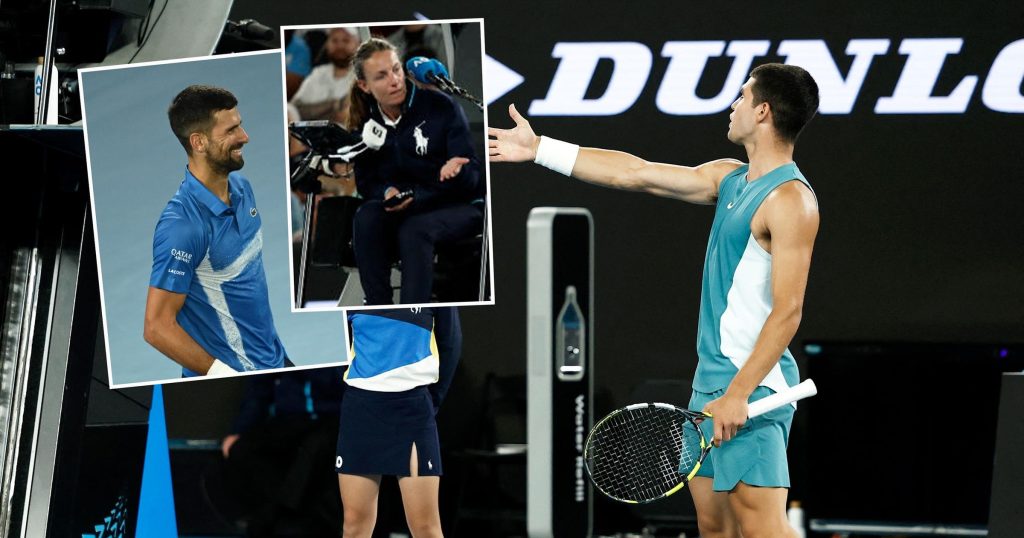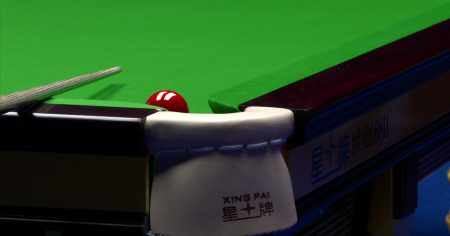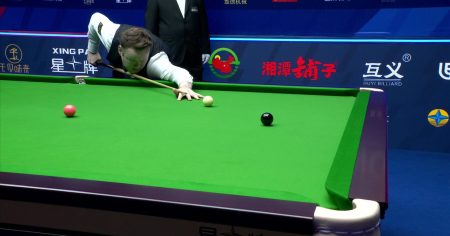The Australian Open quarter-final clash between Carlos Alcaraz and Novak Djokovic, two titans of the tennis world, was a spectacle of athleticism, skill, and drama. One particular moment in the second set ignited a brief yet palpable controversy, adding another layer of intrigue to an already captivating match. Djokovic, a ten-time champion at Melbourne Park, was nursing a left leg injury sustained earlier in the match and was trailing by a set, but held a 3-1 advantage in the second. The contentious point arose at 15-30, a crucial juncture in the set. Djokovic’s serve clipped the net cord before landing in the service box, a net cord let by the rules of tennis. Alcaraz returned the serve, and the rally seemed poised to continue when the chair umpire, after a noticeable delay, finally called a let.
This delayed call sparked Alcaraz’s visible frustration. While acknowledging the correctness of the let call, the young Spaniard questioned the umpire’s timing. Alcaraz argued that the umpire’s delayed intervention disrupted the flow of the point and could have potentially influenced the outcome. His contention was that the delay, estimated at around five seconds, was excessive and had caused both players to momentarily pause, expecting the let call sooner. This interruption, Alcaraz argued, was “crazy” and unfair to both players. He approached the umpire’s chair, not to dispute the let itself, but to express his dissatisfaction with the delayed call and its potential impact on the point.
The commentators, Naomi Cavaday and Tim Henman, observing from their vantage point, offered their interpretation of the situation. Cavaday suggested that Alcaraz believed Djokovic’s reaction, stopping mid-point, might have influenced the umpire’s delayed call. Henman, in turn, observed Djokovic’s apparent displeasure at Alcaraz’s questioning of the umpire. The incident, however brief, injected a surge of tension into the match, highlighting the high stakes and intense pressure of Grand Slam competition.
The controversy, while fleeting, underscored the fine margins that often decide matches at this level. A delayed call, a slight hesitation, a momentary lapse in concentration can all have significant repercussions. In this case, the delayed let call, while ultimately correct, became a point of contention due to its timing. Alcaraz’s frustration stemmed from the disruption to the rhythm of the point and the potential influence it might have had on the outcome.
The incident seemed to fuel Alcaraz’s determination. Channeling his frustration, he rallied to win the game, recovering the break of serve and narrowing the deficit against Djokovic. This display of resilience underscored Alcaraz’s competitive spirit and his ability to bounce back from adversity. The match continued to unfold with captivating intensity, both players showcasing their exceptional skills and unwavering resolve.
Despite the earlier setback and the leg injury, Djokovic ultimately secured the second set, leveling the match. The encounter remained a tightly contested affair, highlighting the remarkable talent of both players. The incident served as a microcosm of the intense pressure and scrutiny that accompanies high-stakes tennis matches. Every point, every call, every second can become a focal point, impacting not only the score but also the mental and emotional states of the players. The Alcaraz-Djokovic quarter-final provided a compelling example of the drama and intensity that define professional tennis.














